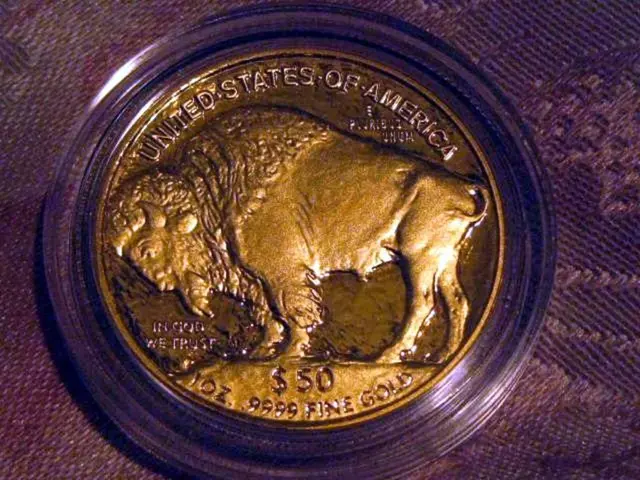American economy experienced an unanticipated contraction; Trump attributes this to Biden's administration
In a dramatic turn of events, the American economy is grappling with the ripple effects of President Trump's escalating trade levies. As businesses and consumers rushed to import foreign goods before Trump's sweeping tariffs took effect, Wall Street indices took a hit, and oil prices saw extended losses.
During a heated cabinet meeting, Trump deflected blame from the economic downturn, attributing it to the former president's policies, claiming, "That's Biden, that's not Trump." On a more optimistic note, he emphasized the "whopping" 22 percent surge in gross domestic investment during the first quarter.
Despite the GDP contracting by 0.3 percent in Q1, Trump maintained a positive outlook, insisting that the underlying numbers reflected the strong momentum his administration is delivering. In contrast, Senate Democratic Leader Chuck Schumer characterized the decline in GDP as a warning sign of Trump and the Republicans' economic agenda.
Notably, this contraction marks the first quarterly drop since 2022, largely attributed to an increase in imports and a decline in consumer and government spending. Economists at Wells Fargo caution that the US economy is more vulnerable to recession than a month ago, but maintain that the 0.3 percent contraction is not an indicator of an immediate downturn. Instead, it reflects the abrupt change in trade policy that culminated in the steepest drag from net exports in half a century.
Amid this unsettling market drama, the Trump administration announced a 90-day pause on higher tariffs for several countries to encourage trade talks, while maintaining a 10 percent baseline for most nations. However, Trump has also increased tariffs on China, escalating duties to 145 percent in several sectors. Beijing has retaliated with targeted measures against American goods.
At the heart of this tussle, Trump believes China is "getting hammered" by the tariffs but remains hopeful for a deal, referring to Beijing as "the leading candidate for the chief ripper-off" of America. He argues that the U.S. doesn't need a plethora of Chinese-made goods and suggests consumers might settle for two dolls instead of 30, with a minor increase in cost.
As the trade battle unfolds, economists note that tariffs are leading to higher consumer prices, potentially hindering economic growth and market stability. The uncertainty surrounding these policies contributes to stock market volatility, making long-term planning difficult and eroding investor confidence. Moreover, there are concerns that other nations might stop using the dollar as a reserve currency in response to these trade policies, with far-reaching consequences for the American economy. In the global arena, there is a potential for alternative trade zones and increased economic influence for China, as the US withdraws from key trade agreements.
- The United States is currently facing economic challenges due to President Trump's trade levies, with imports increasing and experts predicting a greater vulnerability to recession.
- Biden might find himself dealing with the aftermath of Trump's tariffs, as the American economy experiences a contraction, particularly in the first quarter of the year.
- Despite the tensions in the general-news arena and concerns about a recession, Trump's measures in the finance sector, such as the 22 percent surge in gross domestic investment, are seen as promising signs.
- The ongoing trade dispute with China, escalated by Trump's tariffs, has led to retaliatory measures from Beijing and worries about China's potential economic influence in the global industry.
- As the politics surrounding trade heats up, economists warn of potentialews such as escalating consumer prices, stock market volatility, and the impact of other nations divesting from the dollar as a reserve currency.










